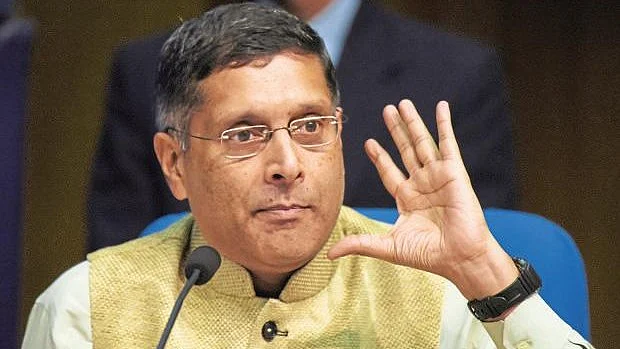POLITICS
Indian economy in bad shape, tax tweaks unlikely to help: Arvind Subramanian
Slowdown is neither cyclical nor temporary, says first chief economic advisor to Modi govt ahead of Union budget on 1 February

Arvind Subramanian, who served from 2014 to 2018 as the Union government’s chief economic advisor, has again sounded the alarm and said the economy is not in great shape. Subramanian, who is a senior fellow at the Peterson Institute for International Economics in Washington DC, told Karan Thapar in an interview for The Wire that the government needs to rethink its handling of the economy. Policies pursued by the government till now, subsidising industry, providing a welfare cushion to the people and incentivising foreign capital, he said, have not worked. Private investment, decent sustainable jobs and private consumption have not grown while manufacturing and exports have lagged behind.
Asked if there was a danger India could become old before it becomes rich, Subramanian said the real danger he sees is that India could become old before it becomes even a credible-middle income country with a per capita income of $5,000. At the moment India’s per capita income is $2,500 – $2,600. China’s per capita income is $12,000.
These are some of Subramanian’s assessments on the Indian economy shared with Thapar.
1. The slowdown of the Indian economy is neither temporary nor cyclical. The slowdown is actually structural. Weak consumption, weak private investment, weak manufacturing and weak exports with declining foreign direct investment and declining foreign reserves are warning signs that the economy is in more dire strait than is generally believed
Published: undefined
2. The ‘China Plus One’ opportunity has partially benefitted India but if 100 US dollars worth of investment have moved out of China, only 10 or 15 per cent of it have moved to India. Tamil Nadu is one of the few states which have managed to attract foreign investment and the lesson from Tamil Nadu is instructive
3. Three years ago when Ford Motors decided to withdraw from emerging markets and shut down its plant in Tamil Nadu, the state government actually facilitated its exit. Three years later when the company reviewed its policy and decided to re-enter emerging markets, it chose Tamil Nadu to set up its plant. Investors, Subramanian suggests, look for similar reassurance that TN provided
4. The government’s policy of promoting ‘national champions’ or favouring a few companies, providing them out-of-turn and arbitrary regulatory benefits, has had a chilling effect on others who have decided to stay away
5. The government’s overzealous taxation, arbitrary application of rules, weaponising state agencies to harass competitors of those it favours have also dampened investors’ enthusiasm
6. The government has been following protectionist policies during the last few years, raising cost of imports and unsettling supply chain of inputs from abroad
7. The policy of the Reserve Bank of India to defend the Rupee during the last two and a half years by selling dollars to ensure that the Rupee stays stable vis-à-vis the US dollar was unwise and ill-advised. It made foreign borrowings relatively cheaper but made Indian products less competitive in the export market. India’s foreign exchange reserve, estimates Subramanian, depleted by a staggering 220 billion dollars in the last two and a half years. It was not a sensible policy and was a reversal of the policy followed by RBI for the last 25 years of letting the Rupee value be competitive
Subramanian also added that the government needs to go back to the drawing board and redraw its strategies. Better relations with states and greater cooperation and coordination with the states are needed to sort out issues related to agriculture, GST, fiscal federalism and create a level playing field to boost investor confidence.
Published: undefined
Follow us on: Facebook, Twitter, Google News, Instagram
Join our official telegram channel (@nationalherald) and stay updated with the latest headlines
Published: undefined